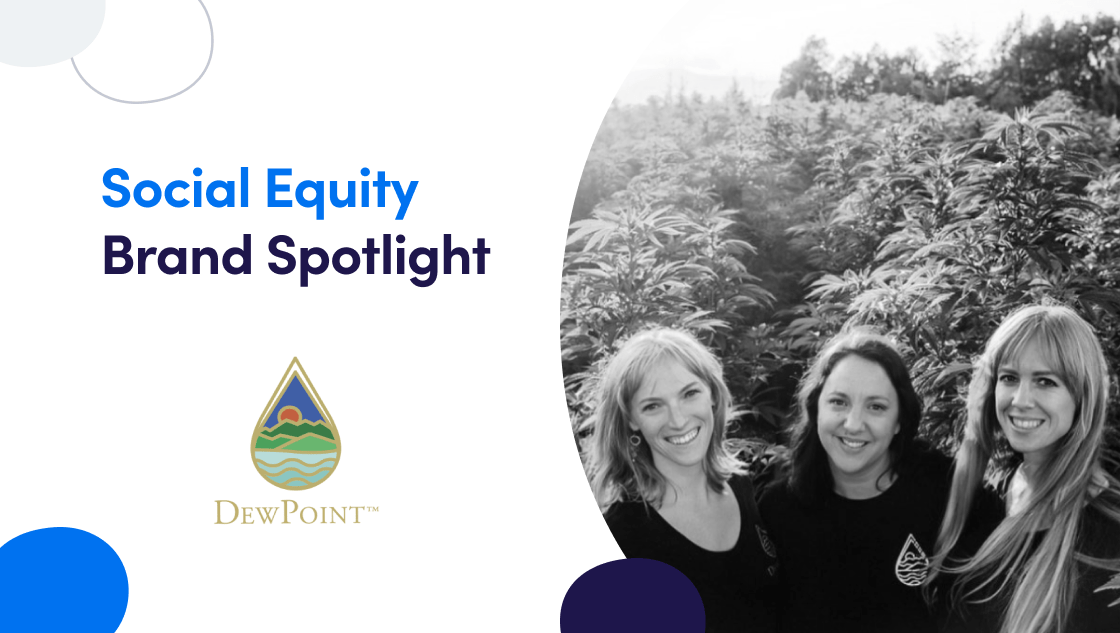
LeafLink Social Equity Brand Spotlight: DewPoint
We’re sharing the stories behind some of our favorite social equity brands. We recently spoke with Andelain Roy, owner of DewPoint, a social equity cannabis brand and cultivator nestled amongst towering redwoods in Humboldt County that’s growing some of the finest sun-grown cannabis in the world.
On her background and how she entered the cannabis industry
I was born on a cannabis farm. My parents and my husband’s were part of the “Back to the Land” movement, which happened during the Sixties (with the hippies.) My mom was totally that person, with long hair and she loved the Beatles. She moved up to Humboldt County because she was protesting against the Vietnam War, and they established a rural community up there.
They brought cannabis seeds over from the Middle East, Afghanistan and the surrounding region. I know for a fact that the back to the landers smuggled seeds sewn into sweaters.
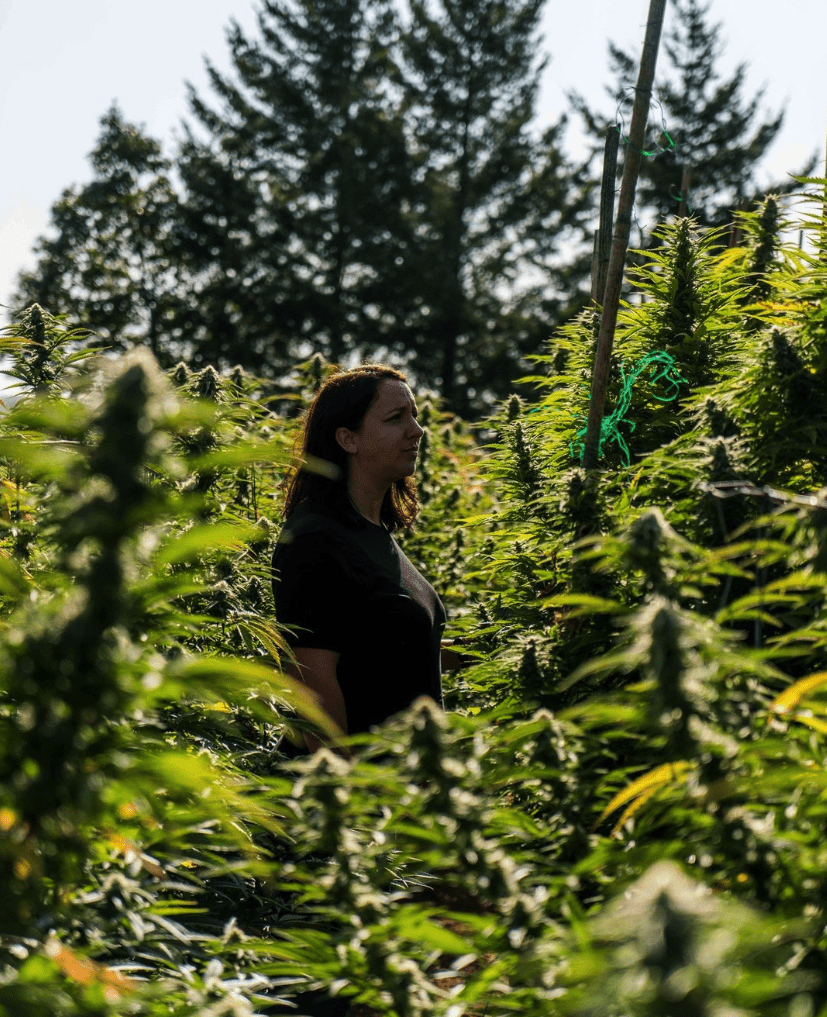
“I was born on a cannabis farm. My parents and my husband’s were part of the “Back to the Land” movement, which happened during the Sixties (with the hippies.)”
They bred for genetics back then, but it was all from the seeds. Cloning didn’t really happen. This is when the core values of the Humboldt County cannabis community were developed, and I’d say the real farmers of cannabis and the sun growers here in the Emerald Triangle came from that generation.
The mindset was all about back to the land, sustaining yourself and the environment, and the money didn’t really matter honestly. It was about living a certain way of life, being stewards of the land, being able to provide food for your family, practicing permaculture and regenerative farming practices and having those core values and mindset at the heart of everything. With legalization and the new regulatory system, that culture has mostly been lost.
On DewPoint and the surrounding area
We cultivate just under one acre, and it’s not your typical flat farm that you can simply till and grow. You drive an hour and a half from town, 30 minutes off the rural 101 Highway through this winding mountain road, go through three locked gates, and our cultivation area is spread over a total of 80 acres. Logistically and economically, it doesn’t make sense to farm a plot like ours but it’s because we were hiding during the War on Drugs.
Our farm is amazing. Not the easiest to work, that’s why I’m still here fighting for it. Not only do I believe in the culture and my community, but also the high-quality product I’m growing. My mother passed away from cancer 9 years ago, and the change to her quality of life through my products and all the products from my community was amazing. It was empowering and gave me more confidence.
All my life, society has viewed cannabis a certain way and said, “You’re the devil, you’re wrong”. But no, actually we’re growing medicine for people on our beautiful mountain farm, and we can change people’s lives in a super positive way as a social equity-certified cannabis business.
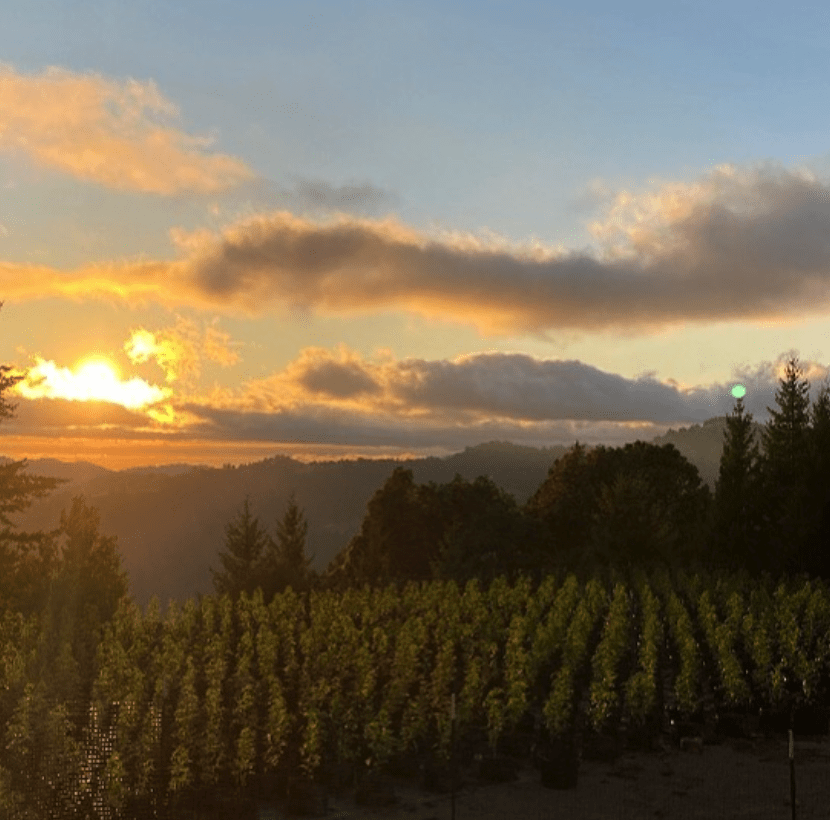
Our farm is amazing. Not the easiest to work, that’s why I’m still here fighting for it. Not only do I believe in the culture and my community, but also the high-quality product I’m growing.”
Want to add a Social Equity Seller Badge to your brand’s LeafLink profile? Click here to submit details around your social equity license or program.
On living through the war on drugs
I lived through the war on drugs, and that’s why I’m certified for social equity. One of my earliest memories is hearing a helicopter (the huge kind they used in Vietnam) coming in, you know boom boom boom. I can still feel that in my soul, and my heart. There are only a few times in history that the U.S. government has used military force on its own citizens, and the War on Drugs is one of them.
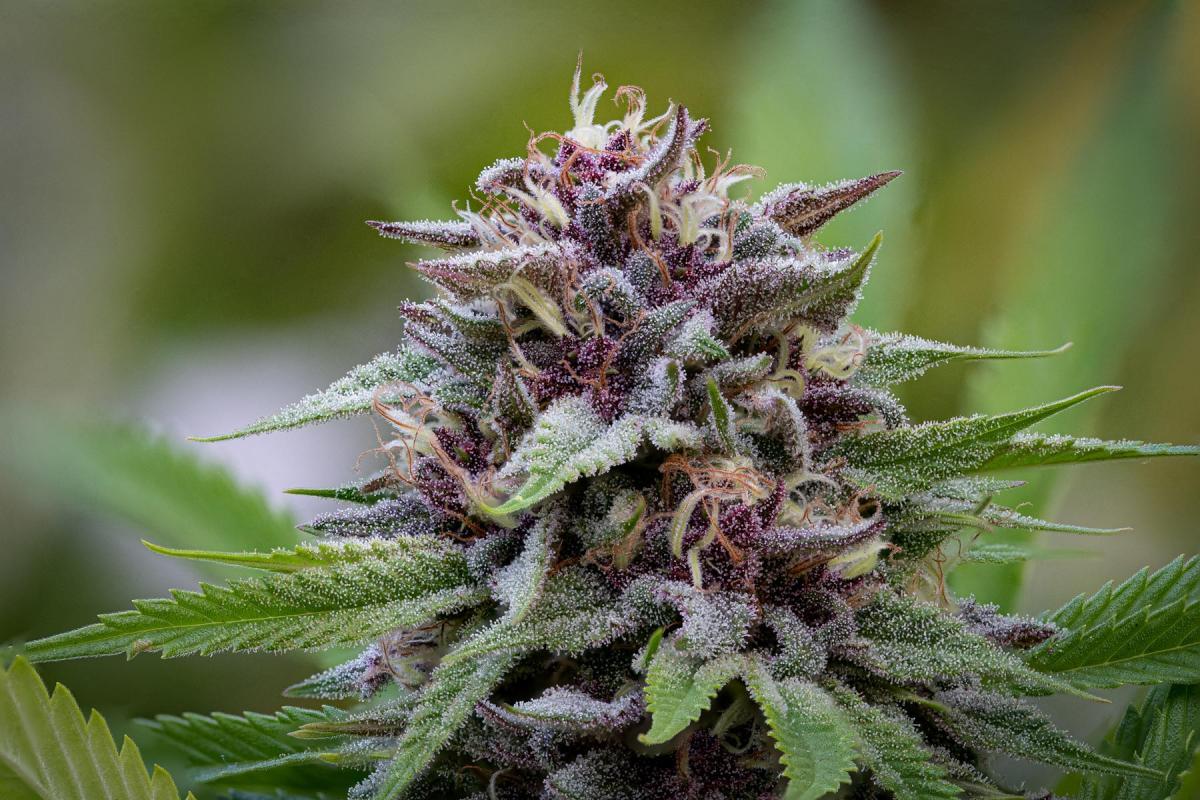
“They’d slash our tires, cause all of this destruction and sadly it worked. My family relocated to town shortly after that. Our lives were destroyed.”
I’m just a kid, naked running through the garden and all of a sudden this grown-up comes running and grabs me. I don’t know if it was my dad, or someone my mom knew. A large grown man swooped me up and into the bushes and covered my mouth to keep me quiet. I could feel his heart pounding and smell the fear.
The helicopter goes by and it’s basically G.I. Joes in full military gear to come for us, unarmed citizens. We’re families, farmers just growing our gardens. They came down, smashed windows and pissed on our clothes. They’d slash our tires, cause all of this destruction and sadly it worked. My family relocated to town shortly after that. Our lives were destroyed.
I was just two or three years old when we experienced that raid. But this has been happening for four decades, and it’s still happening today. If they find a farm that isn’t compliant, they’re right back to that destruction and intimidation which is just crazy.
On the transition from the legacy industry to medical and eventually recreational cannabis
There was a lot of fear and anxiety! They wanted us to sign up and I had to admit I was out of law for how many years? What was going to happen to us? If I get arrested, my children will be taken away — it was scary. But then it became clear that the legal market was a reality, really coming. I am proud of my community, and I love my community. I wanted to see us succeed and have a place in this new market.
So I joined an organization named CCVH, or California Cannabis Voice Humboldt. This organization was formed by my little brother and my older sister, along with other Humboldt County community members. Their goal was to write an ordinance for Humboldt County to regulate cannabis cultivation, and our county was the first to adopt regulations. The state of California looked to us because cultivation wasn’t really happening outside of the Emerald Triangle. We had to tell them how we do it and how the industry works — we were the leaders.
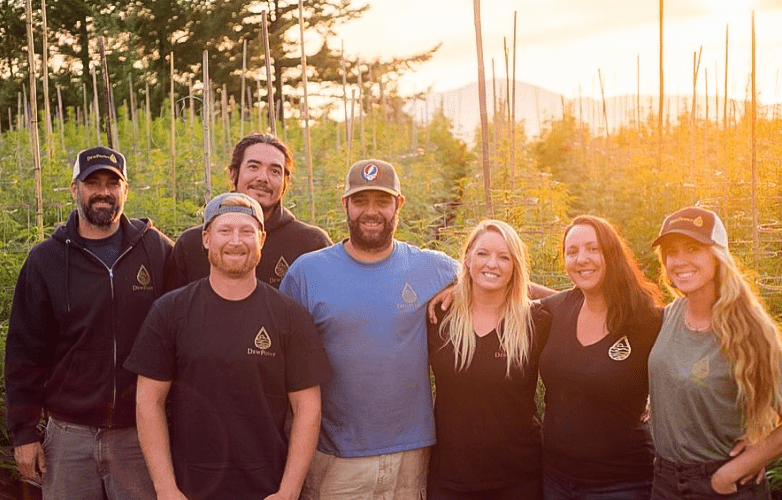
“CA looked to us because cultivation wasn’t really happening outside of the Emerald Triangle. We had to tell them how we do it and how the industry works — we were the leaders.”
I jumped on board because I was tired of not being recognized as a valuable citizen by roughly half of the community. We knew that we were the ones keeping the restaurants and car dealerships, all the local businesses open and pushing the economics of the area forward. Yet we were also frowned upon as criminals and dangerous people. That’s why I love the word outlaw, because there was no legally compliant way to do what we did. We were literally out of law.
On incorporating her farm’s history into their products
So, I love the term outlaws and I will be an outlaw for life. So one of my product lines tells that story, that we were rebels but never dangerous, never criminals. There was no Murder Mountain in my reality of cannabis and Humboldt. It was all about community and lifting each other up. You know, supporting each other and living a certain way of life.
The other story I tell through my product line is the Honeydew Highlands and our Highlands line. This line is connected to loving our property and connecting with the land we live and work on. The soil on my farm is 25 years old, if not older. We harvest our own microbes on our farm and make our own microbial solutions. We even make our own pesticides and they’re so safe we can fertilize our plants with it later. The Highland line is telling a story of land stewardship and continuing a legacy of how to coexist with the land safely over time.
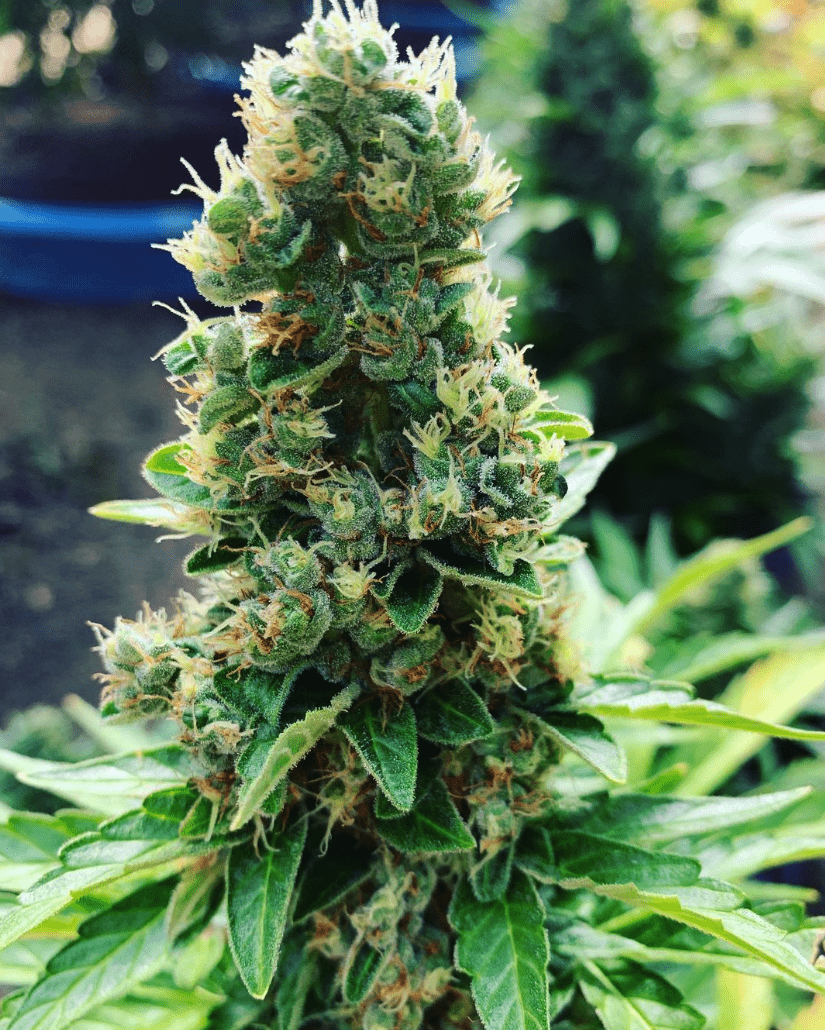
“There was no Murder Mountain in my reality of cannabis and Humboldt. It was all about community and lifting each other up. You know, supporting each other and living a certain way of life.”
We were still normalizing cannabis in 2017, so I joined and sat on the board for the California Growers Association. I didn’t want to fear that my children would be taken away from me and I would go to prison for growing this medicine. Sitting on the board was the first time I realized that the indoor and sun-grown industries are entirely different. I got really passionate about sun-grown and how my cannabis community is made up of sun growers.. I know it’s the right way to farm, and I know that it’s better medicine.
On sun-grown cannabis
We specialize in sun-grown cannabis, that’s where our heart is. Regenerative farming, working with the natural elements, I think a controlled environment reduces the quality of the actual medicine and what the plant has to offer.
A sun-grown plant has to constantly adapt to the sun, to the temperature, the wind, the weather, etc. It’s constantly adapting, like your immune system, and it gets stronger and stronger and stronger. The trichomes are stronger, the terpene profile is stronger and there’s a lot more to the plant than just THC. But it can be hard to compete because the consumer has been taught that indoor is better. It looks prettier in a way, but I know it looks like a plant grown in a controlled environment. Of course, there is a lot of good indoor, but I just don’t believe in it.
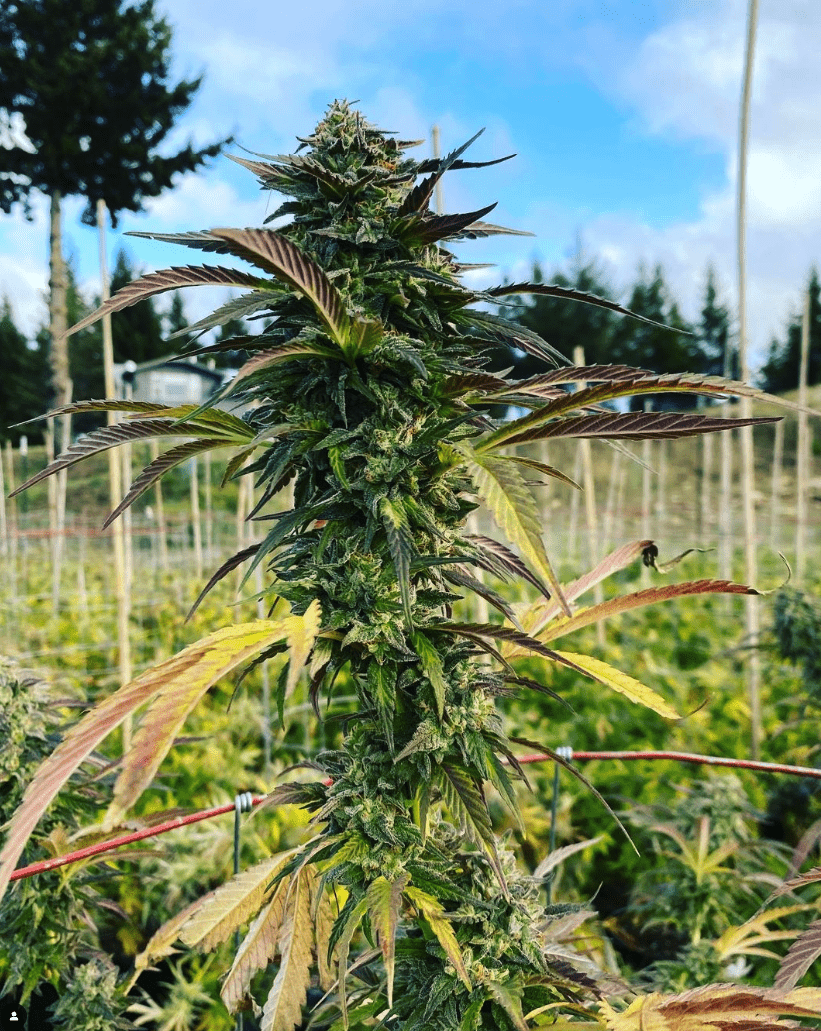
“We specialize in sun-grown cannabis, that’s where our heart is. Regenerative farming, working with the natural elements…”
A lot of people actually don’t believe that my product is sun-grown. We have premium flower eighths in jars, and the process to get the flower in the jars is important to me as well. It’s not just the cultivation that matters, but after that and how it’s cared for when trimming.
Number one, of course, is the cultivation technique and how knowledgeable your team is. Number two is curing the plant after it’s cut down, and how you handle that. This cannot be easily taught, but rather comes with experience. When you get that awesome high-quality sun-grown flower with an amazing terpene profile, you know it takes a lot to get there. It takes someone who knows how to cure, how to read the plant and manage the curing room.
Then there’s processing and how you break down the flower. I’m picky about those three things. Our premium flower eighths are larger flowers, and as you get it into those jars you’re kind of breaking it down so you have the same quality flower, the buds are just smaller. So we do a petite line and call it our petite flower. This is how we get our high-quality flower into the hands of consumers, affordably.
On challenges running a cannabis farm today in Humboldt
It’s ever-changing. It’s hard to sustain a business, being a small farmer and you have this industry that’s changing every three months from a regulatory perspective. The economics and the packaging are constantly changing. There’s also the volatility of the market. Even the costs to produce a pound are increasing, but the actual money we’re getting for it is going down and I like to use the terminology, “death by a thousand cuts.” It’s hard out here, what’s happening to small business owners.
I talk a lot from the cultivation perspective, but there is also a strong small business community in the retail sector of the industry. They’ve also been impacted by the War on Drugs and raids, and a lot of them are family-run, family-owned and they can’t keep their doors open. Death by a thousand cuts once again, from a faltered regulatory system and the instability of the market. Let alone that cannabis is still federally illegal, so banking and just normal business things are incredibly challenging.
At some point, we realized that Humboldt needed its own department within the California Growers Association, because as I said before it was really managing two totally different industries between Southern and Northern California, indoor and sun-grown. That’s how the Humboldt County Growers Alliance came to be (this was around 2017). They’ve been representing Northern California cannabis ever since. Then more trade associations popped up, in Santa Rosa, other parts of the Emerald Triangle that they’ve been working with, and now they’ve all sort of merged together under one umbrella to fight for the industry us smaller farmers need to survive.
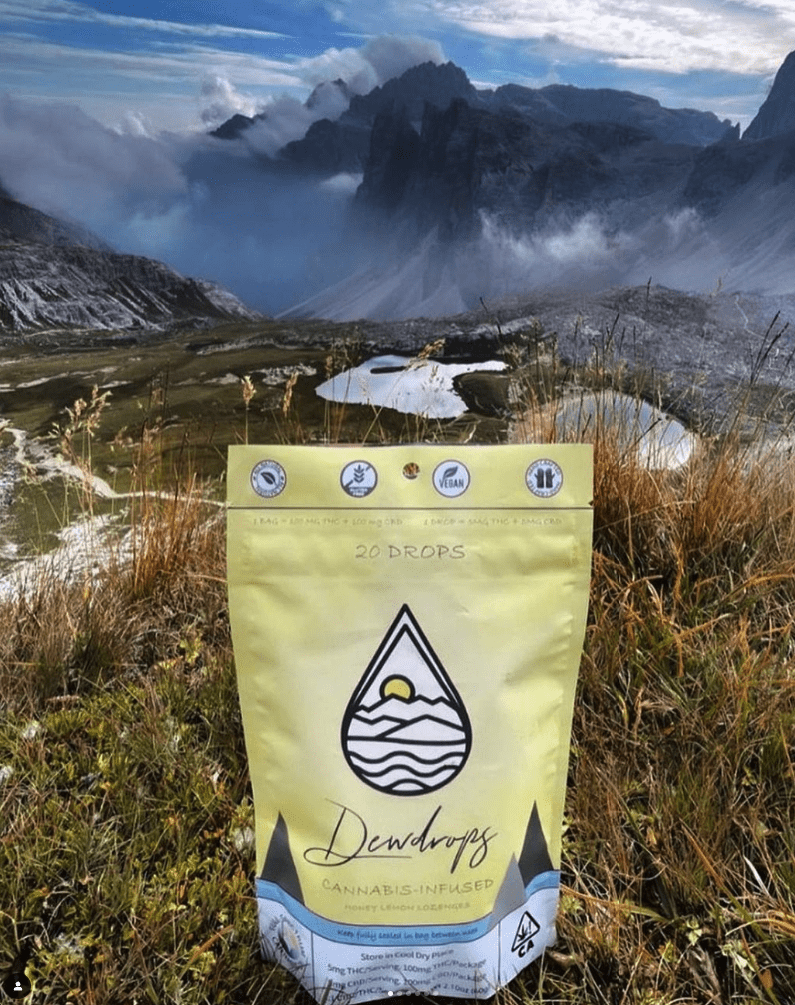
“Our business is our way of life, and there’s no separation there. So making business decisions comes from the heart…”
The creation of the legal industry caused some problems for farmers. These are rural communities, some of them don’t have email or even phones. Then all of a sudden they were expected to understand regulations, all the paperwork, the business decisions and profit margin and everything else involved in a regulated, legal industry. I’m honestly embarrassed that I even know the word profit margin because it’s not part of my way of life.
Our business is our way of life, and there’s no separation there. So making business decisions comes from the heart, which can work against us because we’re not just thinking about making the most money or stomping on others to get to the top. It has definitely opened up opportunities, but not without certain downsides and complications that are causing long-term damage to the communities up here.
On what’s next for DewPoint
We have big plans, but we need the funding to get there. I have one amazing flower line but I don’t have the money to put it into production, so I’m working on getting grant funding and Trellis funding for that. But it’s very rigid what I can get funding for. I also have an edible company under the umbrella of my license, and we do honey lemon lozenges (I believe it’s one of the first lozenges on the market). We wanted to do something different, so we did a farm-to-lozenge hard candy from my farm. The packaging is so cute too!
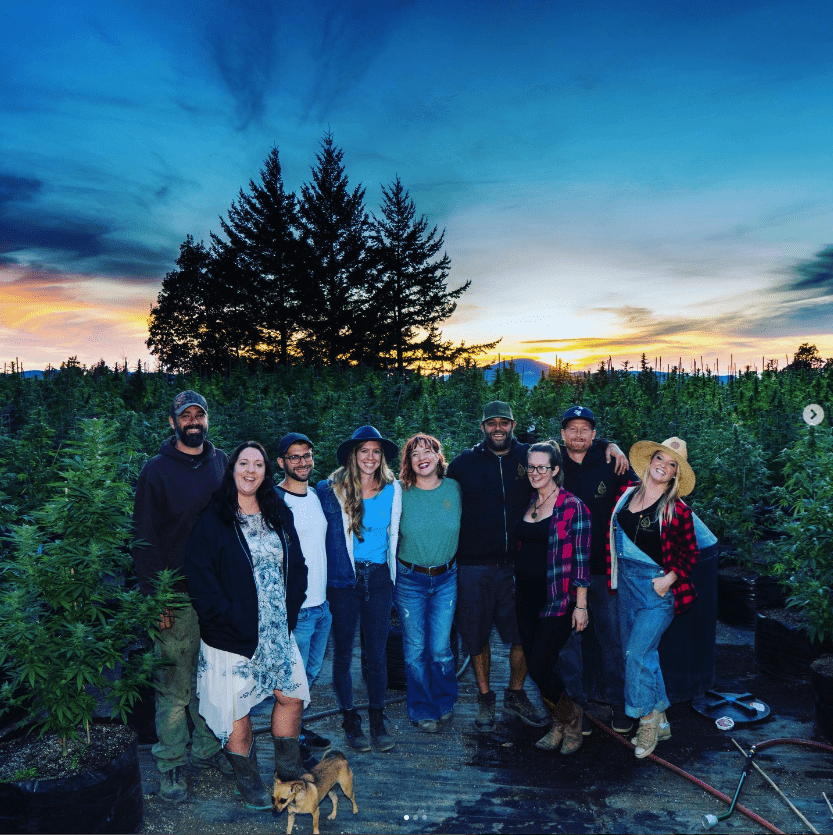
“Things need to change if the Humboldt County community is going to survive into the future, and we need everyone’s help to get there.”
So DewPoint is really in the pinnacle area for cultivating cannabis. I like to compare it to the wine industry, and I want to create a similar experience where people can come visit the farm and experience the full scope of what we do here. They’ll also get to try some amazing products and we’ll turn it into a rich visiting experience.
It would be amazing and it’s kinda happening, but the county is rigid about it because of environmental regulations. So I need more capital to invest in the roads, get the permits and the infrastructure, etc. and it’s going to be $200,000 to $500,000 just to get set up. And honestly I’m here trying to pay my mortgage and make sure my business survives, which makes this dream feel somewhat unattainable.
This is just another way that the industry can be more difficult for smaller farms, smaller businesses because we just don’t have the capital to invest like this and function for 5+ years without making profit. I get shunned by retailers sometimes because I don’t have enough variety, yet I can’t get the capital to invest in additional product development. A lot of us are self-made, and a lot of them are owned by people like me and just barely, barely scraping by.
I have hope that things will start to look brighter, but right now it is a tough time for us and for other small businesses like ours. Things need to change if the Humboldt County community is going to survive into the future, and we need everyone’s help to get there.
Want to add a Social Equity Seller Badge to your brand’s LeafLink profile? Click here to submit details around your social equity license or program.